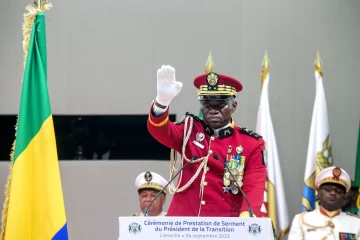Pakistan has been bleeding for over a decade now. Religion is dear to Pakistanis and most of them cannot imagine living as secularists or avowed atheists, because these popular western ideas are fundamentally opposed to their vision of faith. This is perfectly understandable in a country which has no epic historical experience with caesaropapism, reformation, counter-reformation, revolutions and indigenously thought out political systems, like in Europe. But a slim mass of self-conscious Pakistanis with their minds still not blinded by the dazzling imperialism of religious fanaticism would believe otherwise. They would unanimously agree that an obscurantist version of religious frenzy with violent thoughts and predominance of sectarian intolerance has gripped this country’s innately happy-go-lucky regional cultures. Mosques and religious seminaries of varied sects, traditions and schools of thought in and around Indian-subcontinent are ideal places of worship, traditional religious education and spiritual training. But the politics of the region, poor economies of the hinterlands and the nature of Puritanical religious ideology inspired from Salafism and Wahabism in Saudi Arabia has given a sacralized temporality and transcendental overlay to the students and their instructors’ in these schools turned laboratories of faith for none state-actors.
The adherents of this version of religion have quite finely divided Pakistan’s society over the last 40 years at least. They remain happy unless the state grooms them as its assets but oppose the establishment when shown indifference or an iron fist. The height of shame is that they perpetrate vindictive violence under the mask of their victim image which is tirelessly portrayed by ultra-right wing ideologues like Orya Maqbool Jan, Hameed Gul, Ansar Abbasi, Moulana Fazlurehman, Moulana Munawwar Hassan, Moulana Samiul Haq, almost 2/3rd of the nation’s Manichean minded population (who think in black and white only) and none other than the eminent opposition leader Imran Khan and his passionate infantry of recent over 18s. The countries Left leaning population and intellectual class is frightened to virtual silence in the issues related to the place of religion in public space and politics. That’s why every now and then a targeted bullet pierces through some opinionated personality’s bosom on a thoroughfare to impose a silence upon the rest. Prime Minister Nawaz Shareef’s ruling Pakistan Muslim League has so far proved to be a platoon of coward businessmen who cannot assert the supremacy of the state in this perpetual atmosphere of violence. Many, who argue that Pakistan’s terrorism problem is far bigger than the calibre and valour of any of its current leaders, know that there is more truth and realism in this thought than insult to these public representatives.
Pakistan has had a bitter sweet experience with Westminster style democracy. Indeed, Pakistan’s political history is plagued with a history of conflict between its law makers, judiciary and army. This tumultuous political past has browbeaten to concussion the country, while the emergence of religious militancy has challenged the natural status of the state as the dominant polity of the country. Indeed through its perpetual attacks on places of worship, minorities and dissident sub-groups within Islam, religious congregations, law enforcement agencies, police and army personnel. Religious fundamentalism has created an atmosphere of chaos. Fear is thus injected in society and society is desensitized to violence and political anarchy due to frequency of these killing sprees. Unnatural death used to be an event and news long time ago; but now it’s a routine. In psychology they call it the “boiling frog syndrome.” Imran Khan is too naive to my liking. He has restrained from unequivocally condemning these so called warriors of faith and instead brandished his knives against the Pakistani state, military establishment and the US drone policy, accusing them of using force against what he calls “our own people.” Normatively, within any viable modern nation state, any non-state entity which tries to subvert and challenge its sovereign government via violence and force, is tackled with brutal force. If not; the state slowly concedes its power day by day and becomes a banana state and finally a failed state like Somalia. Legitimacy can only be granted through peaceful political demands within the framework of the democratic system. That’s why the world reveres Martin Luther King, Gandhi and Nelson Mandela’s. Unless a section of population has legitimate demands as the East Pakistanis had in 1971, the state must maintain and restore its authority by all means possible including state terrorism. Israel has kept all her organized and local enemies at bay for 66 years. India suppressed every form of challenge to its state power since 1947; Kashmir and the Golden temple raid being two examples. So did the Sri Lankan government against the Tamil rebels for more than two decades and in modern times Bashar al Assad has not let the so-called Arab Spring guerrillas move him from the throne. Imran can learn more from his enemies than from his Moulana friends and other fellow-travelers including Shareefs who share more with him in their unimaginative and coward thrust on this stale option of dialogues. Any entity which asks for its entitlement as a recognized political entity by spreading bloodshed of innocents, is worthy of scaffold, not talks.
Aamir Aziz, Leiden University


